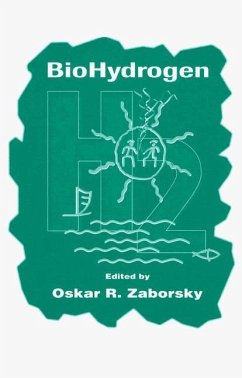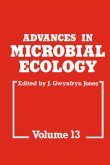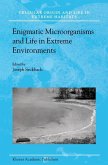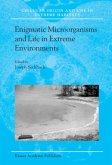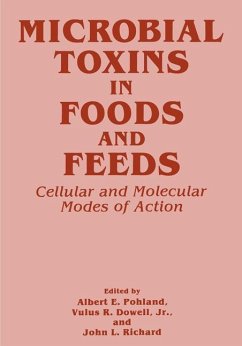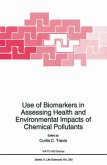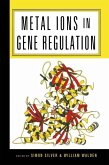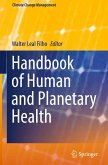BioHydrogen
Herausgegeben:Zaborsky, Oskar R.
BioHydrogen
Herausgegeben:Zaborsky, Oskar R.
- Broschiertes Buch
- Merkliste
- Auf die Merkliste
- Bewerten Bewerten
- Teilen
- Produkt teilen
- Produkterinnerung
- Produkterinnerung
The world needs clean and renewable energy and hydrogen represents an almost ideal resource. Hydrogen is the simplest and most abundant molecule in the universe, yet one that is a challenge to produce from renewable resources. Biohydrogen, or hydrogen produced from renewable resources such as water or organic wastes by biological means, is a goal worthy of increased global attention and resources. The purpose of BioHydrogen '97 was to bring together leaders in the biological p- duction of hydrogen from the United States, Japan, Europe, and elsewhere to exchange scientific and technical…mehr
Andere Kunden interessierten sich auch für
![Advances in Microbial Ecology Advances in Microbial Ecology]() Advances in Microbial Ecology42,99 €
Advances in Microbial Ecology42,99 €![Enigmatic Microorganisms and Life in Extreme Environments Enigmatic Microorganisms and Life in Extreme Environments]() J. Seckbach (Hrsg.)Enigmatic Microorganisms and Life in Extreme Environments166,99 €
J. Seckbach (Hrsg.)Enigmatic Microorganisms and Life in Extreme Environments166,99 €![Enigmatic Microorganisms and Life in Extreme Environments Enigmatic Microorganisms and Life in Extreme Environments]() J. Seckbach (Hrsg.)Enigmatic Microorganisms and Life in Extreme Environments168,99 €
J. Seckbach (Hrsg.)Enigmatic Microorganisms and Life in Extreme Environments168,99 €![Microbial Toxins in Foods and Feeds Microbial Toxins in Foods and Feeds]() Microbial Toxins in Foods and Feeds42,99 €
Microbial Toxins in Foods and Feeds42,99 €![Use of Biomarkers in Assessing Health and Environmental Impacts of Chemical Pollutants Use of Biomarkers in Assessing Health and Environmental Impacts of Chemical Pollutants]() Curtis C. Travis (Hrsg.)Use of Biomarkers in Assessing Health and Environmental Impacts of Chemical Pollutants125,99 €
Curtis C. Travis (Hrsg.)Use of Biomarkers in Assessing Health and Environmental Impacts of Chemical Pollutants125,99 €![Metal Ions in Gene Regulation Metal Ions in Gene Regulation]() Simon Silver / William Walden (Hgg.)Metal Ions in Gene Regulation166,99 €
Simon Silver / William Walden (Hgg.)Metal Ions in Gene Regulation166,99 €![Handbook of Human and Planetary Health Handbook of Human and Planetary Health]() Handbook of Human and Planetary Health81,99 €
Handbook of Human and Planetary Health81,99 €-
-
-
The world needs clean and renewable energy and hydrogen represents an almost ideal resource. Hydrogen is the simplest and most abundant molecule in the universe, yet one that is a challenge to produce from renewable resources. Biohydrogen, or hydrogen produced from renewable resources such as water or organic wastes by biological means, is a goal worthy of increased global attention and resources. The purpose of BioHydrogen '97 was to bring together leaders in the biological p- duction of hydrogen from the United States, Japan, Europe, and elsewhere to exchange scientific and technical information and catalyze further cooperative programs. Parti- pants came from at least different countries representing academia, industry, and g- ernment. Especially important participants were young research scientists and engineers: the next generation of contributors. The conference consisted of plenary presentations, topical sessions, posters, and mini-workshop discussions on key areas of biohydrogen. It was designed to maximize - formation exchange, personal interaction among participants, and formulate new inter- tional initiatives. BioHydrogen '97 was an outgrowth of an international workshop convened by the Research Institute of Innovative Technology for the Earth (RITE) and was held in Tokyo, Japan, November 24-25, 1994. The RITE workshop was highly successful but largely l- ited to traditional biochemical and biological studies and not engineering research topics.
Produktdetails
- Produktdetails
- Verlag: Springer US / Springer, Berlin
- 1998
- Seitenzahl: 568
- Erscheinungstermin: 26. April 2013
- Englisch
- Abmessung: 254mm x 178mm x 31mm
- Gewicht: 1055g
- ISBN-13: 9781475785531
- ISBN-10: 1475785534
- Artikelnr.: 39566561
- Herstellerkennzeichnung
- Books on Demand GmbH
- In de Tarpen 42
- 22848 Norderstedt
- info@bod.de
- 040 53433511
- Verlag: Springer US / Springer, Berlin
- 1998
- Seitenzahl: 568
- Erscheinungstermin: 26. April 2013
- Englisch
- Abmessung: 254mm x 178mm x 31mm
- Gewicht: 1055g
- ISBN-13: 9781475785531
- ISBN-10: 1475785534
- Artikelnr.: 39566561
- Herstellerkennzeichnung
- Books on Demand GmbH
- In de Tarpen 42
- 22848 Norderstedt
- info@bod.de
- 040 53433511
Plenary Sessions.- Biohydrogen 97.- The Science of Biohydrogen.- The Technology of Biohydrogen.- Marine Genomes.- Commencement Challenge.- Fundamentals.- Maximizing Photosynthetic Productivity and Light Utilization in Microalgae by Minimizing the Light-Harvesting Chlorophyll Antenna Size of the Photosystems.- Nostoc PCC 73102 and H2.- Molecular Biology of Hydrogenases.- Effect of Hydrogenase 3 Over-Expression and Disruption of Nitrate Reductase on Fermamentive Hydrogen Production in Escherichia coli.- Improvement of Bacterial Light-Dependent Hydrogen Production by Altering the Photosynthetic Pigment Ratio.- A Toolkit for Metabolic Engineering of Bacteria.- Electron Transport as a Limiting Factor in Biological Hydrogen Production.- Reconstitution of an Iron-Only Hydrogenase.- Attempt at Heterologous Expression of Clostridial Hydrogenase in Cyanobacteria.- Photosynthetic Bacteria.- Study on the Behavior of Production and Uptake of Photobiohydrogen by Photosynthetic Bacterium Rhodobacter sphaeroides RV.- Characterization of a Novel Light-Harvesting Mutant of Rhodobacter sphaeroides with Relation to Photohydrogen Production.- Hydrogen and 5-Aminolevulinic Acid Production by Photosynthetic Bacteria.- Continuous Hydrogen Production by Rhodobacter sphaeroides O.U.001.- Photobiological Hydrogen Production by Rhodobacter sphaeroides O.U.001 by Utilization of Waste Water from Milk Industry.- Polyhydroxybutyrate Accumulation and Hydrogen Evolution by Rhodobacter sphaeroides as a Function of Nitrogen Availability.- Photosynthetic Bacteria of Hawaii.- Conversion Efficiencies of Light Energy to Hydrogen by a Novel Rhodovulum sp. and its Uptake-Hydrogenase Mutant.- Cyanobacteria.- Hydrogenase-Mediated Hydrogen Metabolism in A Non-Nitrogen-Fixing Cyanobacterium, Microcystis aeruginosa.- Identification of an Uptake Hydrogenase Gene Cluster from Anabaena sp. Strain PCC7120.- Hydrogenase(s) in Synechocystis.- Detection of Marine Nitrogen-Fixing Cyanobacteria Capable of Producing Hydrogen by Using Direct Nested PCR on Single Cells.- Programmed DNA Rearrangement of A Hydrogenase Gene During Anabaena Heterocyst Development.- Construction of Transconjugable Plasmids for Use in the Insertion Mutagenesis of Nostoc PCC 73102 Uptake Hydrogenase.- Effect of Exogenous Substrates on Hydrogen Photoproduction by a Marine Cyanobacterium, Synechococcus sp. Miami BG 043511.- Green Algae.- Development of Selection and Screening Procedures for Rapid Identification of H2-Producing Algal Mutants with Increased O2 Tolerance.- Photosynthetic Hydrogen and Oxygen Production by Green Algae.- Light-Dependent Hydrogen Production of the Green Alga Scenedesmus obliquus.- Association of Electron Carriers with the Hydrogenase from Scenedesmus obliquus.- Fermentations and Mixed/Hybrid Systems.- Algal CO2 Fixation and H2 Photoproduction.- Hydrogen Production by Facultative Anaerobe Enterobacter aerogenes.- Artificial Bacterial Algal Symbiosis (Project ArBAS).- The Effect of Halobacterium halobium on Photoelectrochemical Hydrogen Production.- Photosynthetic Bacterial Hydrogen Production with Fermentation Products of Cyanobacterium Spirulina platensis.- Hydrogen Photoproduction from Starch in CO2-Fixing Microalgal Biomass by A Halotolerant Bacterial Community.- Photobioreactors: Photobiology.- Hydrogen Production by Photosynthetic Microorganisms.- Development of Efficient Large-Scale Photobioreactors.- Light Penetration and Wavelength Effect on Photosynthetic Bacteria Culture for Hydrogen Production.- Cylindrical-Type Induced and Diffused Photobioreactor.- Analysis of Compensation Pointof Light Using Plane-Type Photosynthetic Bioreactor.- Hydrogen Production by a Floating-Type Photobioreactor.- Photohydrogen Production Using Photosynthetic Bacterium Rhodobacter sphaeroides RV.- Photobioreactors: Algae.- Bioreactors for Hydrogen Production.- A Tubular Integral Gas Exchange Photobioreactor for Biological Hydrogen Production.- A Tubular Recycle Photobioreactor for Macroalgal Suspension Cultures.- Technoeconomic Analysis of Algal and Bacterial Hydrogen Production Systems.- Environmental Aspects of Large-Scale Microalgae Cultivation.- An Automated Helical Photobioreactor Incorporating Cyanobacteria for Continuous Hydrogen Production.- Internal Gas Exchange Photobioreactor.- Related Topics.- International Collaboration in Biohydrogen.- Principles of Bioinformatics as Applied to Hydrogen-Producing Microorganisms.- Production of Sulfolipids from Cyanobacteria in Photobioreactors.- Practical Considerations in Cyanobacterial Mass Cultivation.- Secreted Metabolite Production in Perfusion Plant Cell Cultures.- Strategies for Bioproduct Optimization in Plant Cell Tissue Cultures.- The Renilla Luciferase-Modified GFP Fusion Protein is Functional in Transformed Cells.- Workshop Summaries.- Rite Biological Hydrogen Program.- Standards Workshop.- Roundtable.
Plenary Sessions.- Biohydrogen 97.- The Science of Biohydrogen.- The Technology of Biohydrogen.- Marine Genomes.- Commencement Challenge.- Fundamentals.- Maximizing Photosynthetic Productivity and Light Utilization in Microalgae by Minimizing the Light-Harvesting Chlorophyll Antenna Size of the Photosystems.- Nostoc PCC 73102 and H2.- Molecular Biology of Hydrogenases.- Effect of Hydrogenase 3 Over-Expression and Disruption of Nitrate Reductase on Fermamentive Hydrogen Production in Escherichia coli.- Improvement of Bacterial Light-Dependent Hydrogen Production by Altering the Photosynthetic Pigment Ratio.- A Toolkit for Metabolic Engineering of Bacteria.- Electron Transport as a Limiting Factor in Biological Hydrogen Production.- Reconstitution of an Iron-Only Hydrogenase.- Attempt at Heterologous Expression of Clostridial Hydrogenase in Cyanobacteria.- Photosynthetic Bacteria.- Study on the Behavior of Production and Uptake of Photobiohydrogen by Photosynthetic Bacterium Rhodobacter sphaeroides RV.- Characterization of a Novel Light-Harvesting Mutant of Rhodobacter sphaeroides with Relation to Photohydrogen Production.- Hydrogen and 5-Aminolevulinic Acid Production by Photosynthetic Bacteria.- Continuous Hydrogen Production by Rhodobacter sphaeroides O.U.001.- Photobiological Hydrogen Production by Rhodobacter sphaeroides O.U.001 by Utilization of Waste Water from Milk Industry.- Polyhydroxybutyrate Accumulation and Hydrogen Evolution by Rhodobacter sphaeroides as a Function of Nitrogen Availability.- Photosynthetic Bacteria of Hawaii.- Conversion Efficiencies of Light Energy to Hydrogen by a Novel Rhodovulum sp. and its Uptake-Hydrogenase Mutant.- Cyanobacteria.- Hydrogenase-Mediated Hydrogen Metabolism in A Non-Nitrogen-Fixing Cyanobacterium, Microcystis aeruginosa.- Identification of an Uptake Hydrogenase Gene Cluster from Anabaena sp. Strain PCC7120.- Hydrogenase(s) in Synechocystis.- Detection of Marine Nitrogen-Fixing Cyanobacteria Capable of Producing Hydrogen by Using Direct Nested PCR on Single Cells.- Programmed DNA Rearrangement of A Hydrogenase Gene During Anabaena Heterocyst Development.- Construction of Transconjugable Plasmids for Use in the Insertion Mutagenesis of Nostoc PCC 73102 Uptake Hydrogenase.- Effect of Exogenous Substrates on Hydrogen Photoproduction by a Marine Cyanobacterium, Synechococcus sp. Miami BG 043511.- Green Algae.- Development of Selection and Screening Procedures for Rapid Identification of H2-Producing Algal Mutants with Increased O2 Tolerance.- Photosynthetic Hydrogen and Oxygen Production by Green Algae.- Light-Dependent Hydrogen Production of the Green Alga Scenedesmus obliquus.- Association of Electron Carriers with the Hydrogenase from Scenedesmus obliquus.- Fermentations and Mixed/Hybrid Systems.- Algal CO2 Fixation and H2 Photoproduction.- Hydrogen Production by Facultative Anaerobe Enterobacter aerogenes.- Artificial Bacterial Algal Symbiosis (Project ArBAS).- The Effect of Halobacterium halobium on Photoelectrochemical Hydrogen Production.- Photosynthetic Bacterial Hydrogen Production with Fermentation Products of Cyanobacterium Spirulina platensis.- Hydrogen Photoproduction from Starch in CO2-Fixing Microalgal Biomass by A Halotolerant Bacterial Community.- Photobioreactors: Photobiology.- Hydrogen Production by Photosynthetic Microorganisms.- Development of Efficient Large-Scale Photobioreactors.- Light Penetration and Wavelength Effect on Photosynthetic Bacteria Culture for Hydrogen Production.- Cylindrical-Type Induced and Diffused Photobioreactor.- Analysis of Compensation Pointof Light Using Plane-Type Photosynthetic Bioreactor.- Hydrogen Production by a Floating-Type Photobioreactor.- Photohydrogen Production Using Photosynthetic Bacterium Rhodobacter sphaeroides RV.- Photobioreactors: Algae.- Bioreactors for Hydrogen Production.- A Tubular Integral Gas Exchange Photobioreactor for Biological Hydrogen Production.- A Tubular Recycle Photobioreactor for Macroalgal Suspension Cultures.- Technoeconomic Analysis of Algal and Bacterial Hydrogen Production Systems.- Environmental Aspects of Large-Scale Microalgae Cultivation.- An Automated Helical Photobioreactor Incorporating Cyanobacteria for Continuous Hydrogen Production.- Internal Gas Exchange Photobioreactor.- Related Topics.- International Collaboration in Biohydrogen.- Principles of Bioinformatics as Applied to Hydrogen-Producing Microorganisms.- Production of Sulfolipids from Cyanobacteria in Photobioreactors.- Practical Considerations in Cyanobacterial Mass Cultivation.- Secreted Metabolite Production in Perfusion Plant Cell Cultures.- Strategies for Bioproduct Optimization in Plant Cell Tissue Cultures.- The Renilla Luciferase-Modified GFP Fusion Protein is Functional in Transformed Cells.- Workshop Summaries.- Rite Biological Hydrogen Program.- Standards Workshop.- Roundtable.

